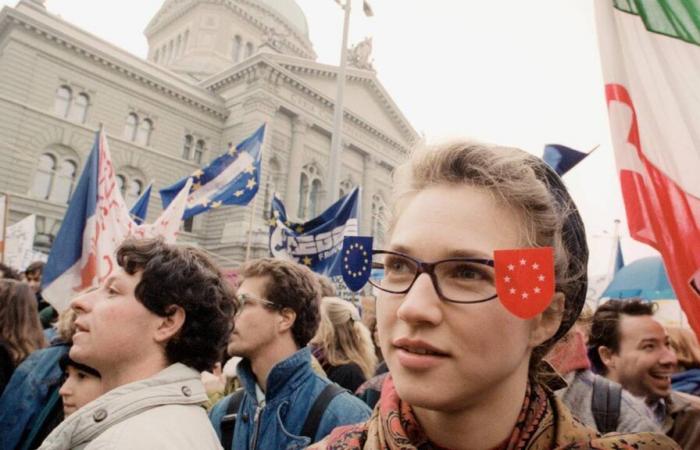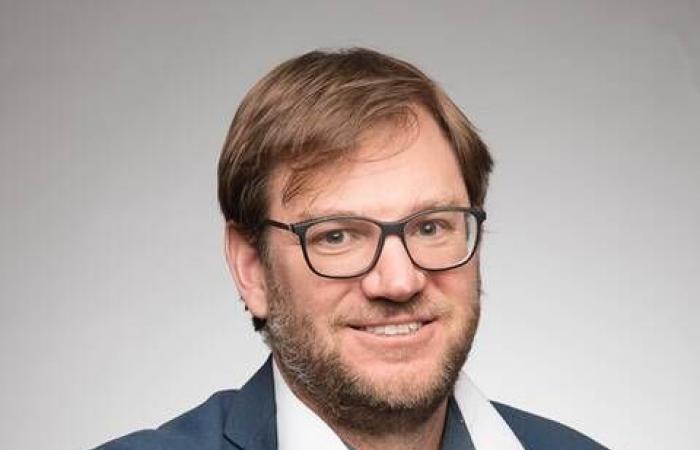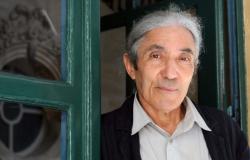Published on November 14, 2024 at 05:54. / Modified on November 14, 2024 at 07:43.
Respectful but uncompromising exchange, with on one side Chantal Tauxe, vice-president of the Swiss European Movement, recognized pen in particular of The Weekly, the magazine which embodied the European cause in French-speaking Switzerland. Familiar with Swiss and European institutions, she even knew a Europhile Pierre-Yves Maillard, while the socialist today embodies left-wing Euroscepticism.
Facing her, Nicolas Jutzet. Vice-director of the Liberal Institute, he is a member of the committee of the Eurocritical alliance Boussole/Europe. Columnist at Tempshe was not born at the time of the vote on the European Economic Area, on December 6, 1992. The future thirty-year-old has a “it was better before” side, which led him to publish a very stimulating essay at Editions Slatkin: Switzerland no longer exists.
Chantal Tauxe – Nicolas Jutzet: two generations, two visions, some shared observations
Should Switzerland choose between the Europe of Brussels and the America of Trump? If our two interlocutors agree on the usefulness of “not having all your eggs in one basket”, as Chantal Tauxe illustrates, she adds: “We must not delude ourselves about what we can gain on global markets. More than half of our foreign trade is with the European Union. And in this half, it is mainly with Germany, France, Italy, Austria… Even before the bilateral agreements, since Switzerland has existed and traded, it has been with our neighbors.”
It is also a longer-term positioning, with “all the geostrategic and defense issues which make me say that, frankly, this is not the time to get angry with our European neighbors”.
Nicolas Jutzet’s response: “The disconnect is effective (between Europe and the United States). Finally, Switzerland has already made a de facto choice. Not politically but in economic realities. Since the 1990s, the EU has been losing importance. And it is other markets, typically like the United States and Asia, which are gaining importance, which means that in five or ten years, Asia will be a more important market than Europe.” However, he does not speak of a breakup: “There is no need to divorce. You can stay on good terms with a former partner.”
Short-term outlook for the economy
At the center of the discord between our two interlocutors, there is also the evolution of bilateral Swiss-EU relations, mainly with the adoption of mechanisms for dynamic incorporation of community rules. One hundred and forty negotiation sessions, since March 2024, have not been enough to complete this third package of bilateral agreements.
What would be the consequences of failure? “It’s still quite simple,” summarizes Chantal Tauxe. We must conclude. You have to initial it. We need to send this to parliament. The discussion needs to take place. And then we must be aware of one thing: if we say no, whether at the level of parliament or a popular vote, there will not be a third time. We will return to the discussions we had in 1992. What are the alternatives? There will remain free trade agreements, and then lots of complications at the borders. A lone rider is possible. It will certainly have a social price. There is also the European Economic Area or membership.”
Nicolas Jutzet admits, “in the first moments, it risks being painful… I do not agree with this vision of the short term and it is even a criticism that we can make to part of the economics: thinking too short-term.” For the vice-director of the Liberal Institute, it is the Swiss model that is at stake. If Switzerland “is doing a little better than the others… It is not because we are better. It’s simply because our institutions make us a little more responsible. That we invest a little more in the long term. That we are a little closer to private property. That we do a little less stupid things than elsewhere. And it is all of these elements that we are putting at risk, in the very long term, if we sign this type of agreement.”
“For Ukrainians, Europe means protection”
To conclude, after these very down-to-earth considerations, a more existential question: does Europe still make us dream? Chantal Tauxe: “It doesn’t make me dream, but it moves me. It moves me when I think, with my training as a historian, that in the same parliament, there are Poles sitting next to Germans. When we think about the history of Poland and Germany, not to always talk about the French and the Germans, it touches me. We must respect that in Ukraine or Georgia… there were huge demonstrations in favor of Europe… For them, Europe is synonymous with protection.”
Nicolas Jutzet shares this emotion for people: “I am also touched when Ukrainians have the impression that their future will be more secure (in Europe). I share this emotion, in the same way that I am moved when I see Dutch painters from the 17th century.” But he resents the way Europe is built: “It even saddens me that my future is not European. I am even very angry, very angry with the institution which means that, unfortunately, the future will not be played out here.”







